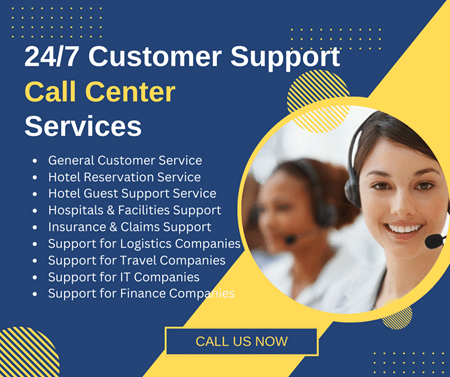Businesses need a centralized system to store and process their database. Today, each employee, partner, and business associate access the business data from a single, centralized solution. This explains why more and more companies are using advanced CRM systems to organize their database in one place and ensure seamless communication between their teams.
Zendesk and Salesforce are two of the leading customer relationship management (CRM) platforms that have been gaining popularity lately. Both are cloud-based CRM solutions that aim to enhance customer experience and improve customer retention.
So, how do you pick the best? There’s no one-size-fits-all approach to choosing the best cloud-based software. It depends on your business size, nature, and requirements.
Understanding their core features and how they can automate and streamline your sales and customer management can help. In this Zendesk vs. Salesforce comparison guide, we’ve explained the key functionalities of each platform and how they have helped businesses achieve their customer relationship goals.
Let’s get started.
Zendesk: A Brief Overview
Trusted by more than 200,000 clients across different industries, Zendesk is the leading customer relationship management platform. It focuses on automation, collaboration, and efficiency in all business operations. It’s mainly used to improve customer service solutions.
Offering an extensive range of collaboration and communication tools, the platform enables businesses to provide uninterrupted after hours call center services and manage all their clients in one place.
You also get workflow automation, analytics and reporting features, and a host of marketing tools that help you in sales, customer management, and organizing databases. Simply put, Zendesk works by improving collaboration between teams and ensuring smooth communication and automated workflow.
Zendesk works for all businesses that prioritize customer relationships but is mainly recommended for software and subscription-based service providers, as customer service is the key to their success.
Its features, like side conversations, make it easier for your team to collaborate with internal or external support service agents to speed up ticket response and resolution rates.
Likewise, its customized dashboard with advanced analytics and reporting tools gives you comprehensive insights into the latest trends in the CRM industry. You can also generate reports that show your business’ performance, agents’ response time, customer feedback, and satisfaction rate.
This detailed data helps in decision-making. With Zendesk, you can work with your team to implement a customer service system that offers the best support to your clients.
SalesForce: A Brief Overview
Launched in 1999, Salesforce is another popular CRM solution packed with a complex set of features that help in sales, marketing, and customer management. Salesforce is an ideal option for businesses that want to increase their lead generation and optimize their sales and marketing processes.
Although initially developed for large-scale organizations, Salesforce has grown to become an established CRM platform for all sizes and types of businesses across different industries. Its AI-based functionalities and powerful workflow automation tools make it an industry leader.
What sets it apart from others is its large community of developers who have built and integrated different apps into the system, making it the most comprehensive CRM platform you’ll find on the market. Furthermore, a skilled Salesforce architect can help adapt the platform to your specific business needs, ensuring maximum efficiency and performance.
Its diverse range of services makes it the best. You can use Salesforce to create marketing campaigns for emails, social media, and your websites. Its Commerce Cloud solution is for eCommerce store owners.
It helps you manage your online store, product catalog, and ordering. Its sales features enable your team to collaborate and automate most sales processes.
You can also use it to track lead generation, sales, and employees’ performance. Overall, it’s an all-in-one customer relationship management solution that uses AI-powered capabilities to improve customer services, sales, and marketing operations.
Zendesk Vs. Salesforce
Zendesk and Salesforce offer features that elevate your customer experience and provide quick and seamless support to your end-user. Although the interface, range of features, pricing, integrations, and other aspects of each platform differ, the goal is the same—to provide excellent customer service and boost customer retention.
Let’s compare the core features of each software.
1. Communication
Communication is key to a great customer experience. Both Zendesk and Salesforce have integrated the best functionalities to offer uninterrupted and centralized communication channels that help teams connect internally and with the end-user easily.
Zendesk
Key Features
- Centralized ticketing system
- Supports multiple communication channels
- Live chat support for instant response
- Self-service portals
- Advanced communication features like Side Conversations and Mentions for team collaboration.
Zendesk has a robust ticketing module that gathers user inquiries from multiple channels into a single place, providing agents with a clear view of all customer concerns. There’s no need to switch between different platforms to view tickets.
Whether your customer raises a concern through their social accounts or drop an email, their queries will be converted into tickets, which are displayed on Zendesk’s ticket dashboard.
Its side conversation and mention features enable the agent to contact an IT professional, be it an in-house team member or an external one, and invite them to resolve the ticket. This enhances team collaboration.
The live chat system saves customers time by connecting them to a professional agent who offers real-time support.
Salesforce
Key features
- Live chat available
- Self-service portal
- Community management
- Supports multiple communication channels
- Customer support tickets are available
Salesforce offers you the tools to communicate with your clients throughout the sales cycle. From the moment they land your website to when they reach the end of the sales funnel, you can use its automated responses, follow-up communication, and other advanced communication tools to stay connected with your customers.
The software also supports a community management feature that allows businesses to set up the community of their customers, partners, business associates, and internal and external team members to facilitate the best collaboration. Salesforce is compatible with email, chat, phone, social media, and other support channels.
Verdict
If you are an IT service provider or in an industry, that receives multiple customer requests, Zendesk offers a more comprehensive communication system. It has a neat dashboard and a seamless user interface for ticket management.
So, Zendesk is the clear winner if you want a personalized help desk communication system. Salesforce, on the other hand, is for businesses that want to prioritize communication across the sales, marketing, and customer service departments.
2. Workflow and Automation
The level of automation a CRM offers determines how reliable it is and how well it can streamline your core business operations. Fortunately, both Zendesk and Salesforce feature robust automation tools that help automate most of the hectic manual tasks, freeing up your time for other core business operations.
Here’s a comparison of both in terms of workflow and automation.
Zendesk
Key features
- Ticket workflow automation
- Ticket escalation when needed
- Automated notifications
- Chatbots for automated response
- Supports custom workflow
Zendesk is known for its ticket workflow automation. As mentioned earlier, customer queries are automatically converted into tickets and organized in one place. These tickets can be manually assigned to the agent, or you can use active automation, which assigns each ticket to an agent based on their availability, qualification, and ticket complexity.
Not only does it assign tickets automatically, but Zendesk’s automation is also enabled for ticket escalation. Tickets that remain unresolved for a long period are escalated to a superior-level IT professional for quick resolution.
The platform supports automated responses, i.e., sending an automated follow-up message, email notifications, and chatbots that follow a pre-built template to guide customers throughout their support journey.
Salesforce
Key features
- Visual process builder
- Build customized apps using its flow builder
- Email and calendar automation
- Automate marketing campaigns
- Ticket routing and escalation
- Self-service support
Salesforce automates repetitive tasks and allows your team to focus on more critical business operations while the bots handle data entry, document processing, and other mundane tasks. No coding is required, and Salesforce does not have a complex automation structure that would require professional assistance.
Its Process Builder is a highly efficient automation tool that sets the system to take actions based on predetermined criteria. Defining these actions is pretty straightforward. You can use the visual builder with drag-and-drop features to set instructions and define when the automation should be triggered.
Suppose you have enabled automation for when your customer makes a purchase. Every time a customer buys from your store, automation is triggered, and Salesforce will take the action you have set, such as sending an auto-generated email to the customer notifying them about their purchase status or guiding them to the checkout.
Verdict
Salesforce offers a more comprehensive automation than Zendesk. The latter automates the ticketing system, but Salesforce has integrated automation into sales, marketing, emails, ticketing, and the entire workflow.
3. Reporting and Analytics
No CRM management tool can deliver your desired results without a robust reporting and analytics tool. The auto-generated reports show how well your business is performing, as well as your customer satisfaction score, churn rate, and other factors that help improve and streamline your routine operations.
Zendesk has simple reporting tools, while Salesforce is an ideal option for organizations looking for comprehensive reporting. Let’s compare each.
Zendesk
Key features
- Share the dashboard with your team for better analysis
- Custom reports
- Real-time historical data
- Predictive analysis
Zendesk’s reports are primarily based on its ticketing module and feature metrics, like ticket resolution rate, agent response time, and ticket volume. Use its advanced dashboard to track reports in real time and share them with your team.
This ensures that your entire team is aware of your business performance, individual performance, customer satisfaction, and other crucial metrics.
Not just the basic reports, but this cloud-based CRM solution offers advanced analytics features packed with features like historical data analysis, predicting future trends, identifying customer behavior, etc.
Salesforce
Key features
- Customized reports
- Neat dashboard for real-time data monitoring
- In-depth online reports
- Predictive analysis
- Data visualization
Salesforce is known for its reporting engine, which enables users to create customized reports and generate insights into their sales performance, marketing campaigns, customer service, and other metrics.
The company also has a customizable dashboard that gives you a clear picture of your business’ data in a single place. Salesforce offers Einstein Analytics, an AI-powered data analytics tool that helps you visualize your data in charts and table formats.
Moreover, the tools offer predictive analysis, identify trends, and help you make data-driven decisions. The feature is mobile-optimized, allowing your team to access it on the go. This CRM solution offers customized reporting, which lets you create and customize reports for different operations.
Salesforce reports give you a glimpse of your customers’ buying journey on your website. This includes metrics like how your customers found you, their engagement rate, where they left the sales funnel, and more.
Verdict
For small businesses or IT support service providers, Zendesk’s simple reporting features are often enough to gain valuable insights into your business performance, customer satisfaction, and ticket metrics. If you want a more complex solution with advanced reporting and customization options, Salesforce is your best choice.
4. Pricing
Both Salesforce and Zendesk are quite pricey, but you can choose a plan that suits your business requirements and budget. Here’s a breakdown of the pricing structure for both solutions.
Zendesk
Here’s the Zendesk pricing structure.
| Plan | Price/user/month | Features |
| Suite Team | $55 |
● Support is available through email, live chat, phone, social media, etc. ● Advanced ticketing ● Supports 1000+ app integrations ● Help Center ● Chatbots ● Analytics and Reporting |
| Suite Growth | $89 | All features of Suite Team
● SLA ● Customer satisfaction rating ● Multilingual support ● Self-service portal |
| Suite Professional | $115 | All features of Suite Team
● Light agents ● Self-service portal ● Skill-based automated ticket routing ● Advanced AI ● Community forums ● Multilingual support |
| Suite Enterprise | Custom |
All features of the above plans ● Custom agent ● Sandbox ● Content blocks |
Salesforce
Each cloud edition offered by Salesforce comes packed with a vast range of features, with the lowest plan starting at $25/user/month. Here’s what you get:
| Plan | Price/user/month | Features |
| Starter Suite | $25 | ● Email integration
● Quick setup ● Easy onboarding ● Lead and contact management |
| Professional | $80 | ● Custom reports
● Customized dashboards ● Quoting |
| Enterprise | $165 | ● Workflow automation
● Excellent flexibility ● Web API ● Territory Management ● All features of the professional suite |
| Unlimited | $330 | ● Predictive analytics
● Premier success plan ● All features of Enterprise |
| Einstein 1 Sales | $500 | ● Generative AI
● Excellent team collaboration ● Performance management ● Everything in the above plans |
Verdict
Salesforce is one of the most expensive CRM solutions and is considerably pricier than Zendesk. It’s ideal for larger businesses that want greater control over their sales, marketing, and entire business operations, as well as customer relationship management.
The company offers a 30-day free trial, which gives you a better understanding of how the plan works and whether it’s a good fit for your business. Zendesk’s pricing is more flexible and affordable. If you aren’t sure about its plans, you can sign up for monthly payments, but that costs extra. You also get a 14-day free trial to test Zendesk’s plans.
Conclusion
Zendesk and Salesforce are two popular CRM solutions for different businesses. Each solution aims to streamline customer service and facilitate collaboration.
As you can see, Zendesk is centered around customer service solution providers and is an ideal choice for IT companies, call centers, and other customer service providers.
Its seamless internal collaboration and robust ticketing solution make the system perfect for small-to-mid-sized businesses. Salesforce can be adapted to all your business operations but is mainly focused on sales, marketing, and customer management.







